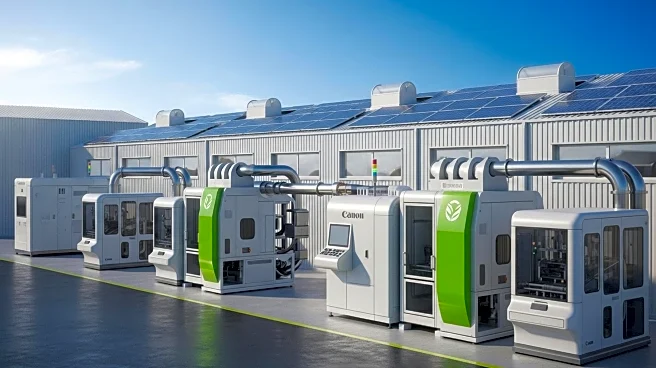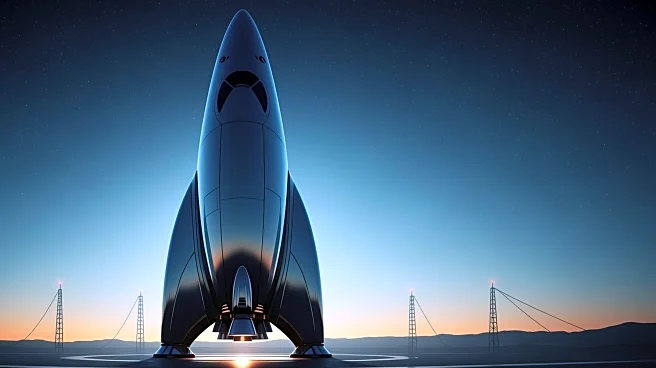What is the story about?
What's Happening?
LG Electronics has introduced a new material and manufacturing process for its 4-way system air conditioners, aimed at reducing plastic consumption and carbon emissions. This initiative is part of LG's commitment to environmental sustainability, aligning with its Better Life for All ESG vision. The company has adopted a foaming injection molding process, which involves injecting nitrogen gas into the mold to create bubbles within the material, thereby reducing plastic use by approximately 900 grams per unit. Additionally, LG has replaced Acrylonitrile Butadiene Styrene (ABS) with Polypropylene (PP), a material with a lower carbon footprint. These changes are expected to cut plastic consumption by about 270 tons annually and reduce CO2 equivalent emissions by over 4,400 tons each year. LG plans to expand this manufacturing method to other residential and commercial models.
Why It's Important?
The adoption of eco-conscious manufacturing processes by LG is significant as it represents a shift towards more sustainable industrial practices. By reducing plastic use and carbon emissions, LG is contributing to global efforts to combat climate change. This move not only aligns with environmental goals but also positions LG as a leader in sustainable manufacturing within the electronics industry. The reduction in carbon emissions is comparable to the carbon absorbed by a 30-year-old pine forest covering more than 580 soccer fields, highlighting the substantial environmental impact. This initiative could influence other companies to adopt similar practices, potentially leading to broader industry-wide changes in manufacturing standards.
What's Next?
LG aims to achieve carbon neutrality by 2030, with a target to reduce greenhouse gas emissions by 54.6% compared to 2017 levels. The company plans to integrate high-efficiency equipment and adopt renewable energy sources in its manufacturing processes. As LG continues to innovate and expand its eco-friendly practices, it may set new benchmarks for sustainability in the electronics sector. The success of these initiatives could lead to further advancements in eco-conscious technologies and inspire other manufacturers to follow suit.
Beyond the Headlines
The shift towards sustainable manufacturing practices by LG highlights the growing importance of corporate responsibility in addressing environmental issues. This development underscores the potential for technological innovation to drive significant environmental benefits. As consumers become more environmentally conscious, companies that prioritize sustainability may gain a competitive advantage. Additionally, this move could prompt regulatory bodies to implement stricter environmental standards, further encouraging industries to adopt sustainable practices.
















